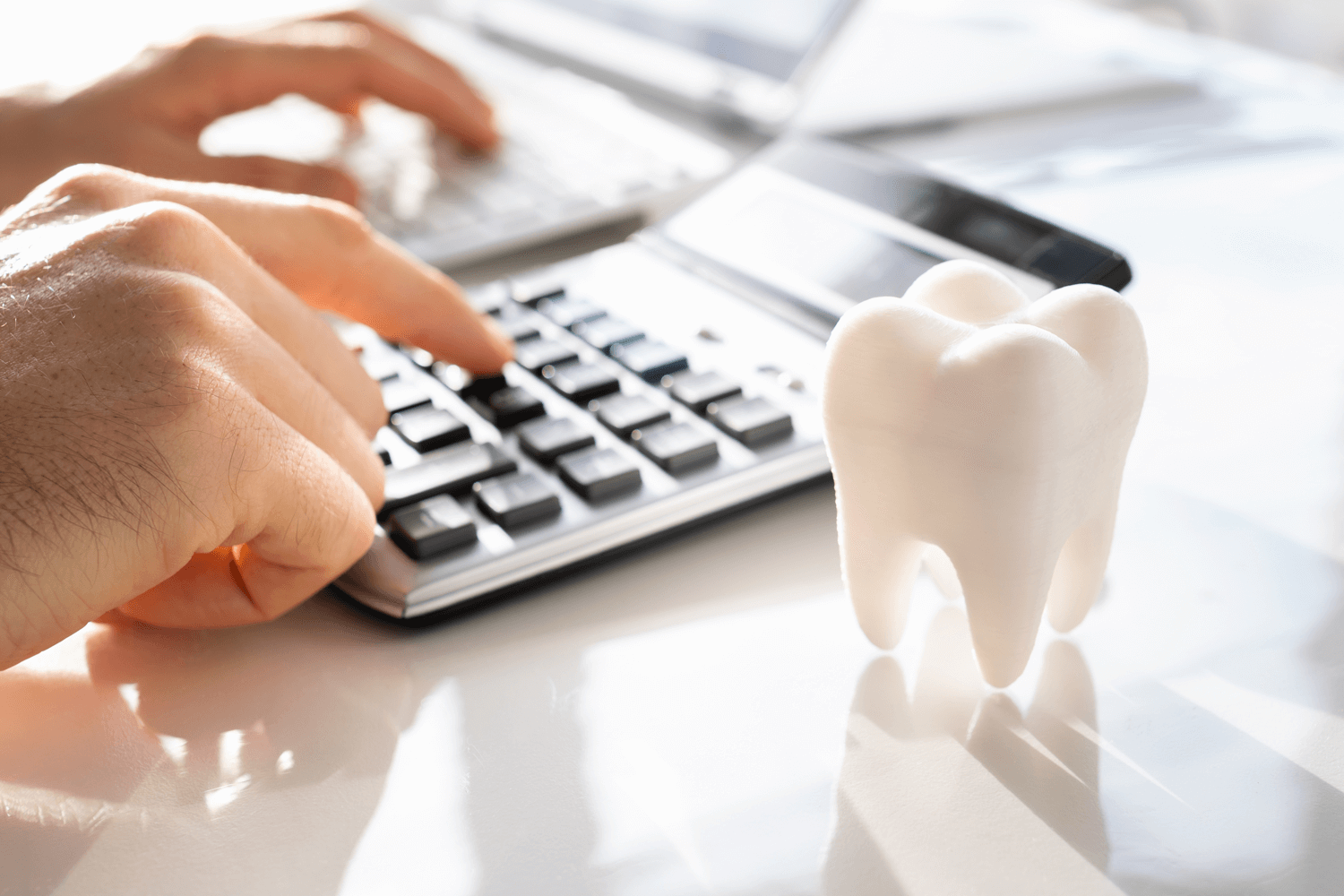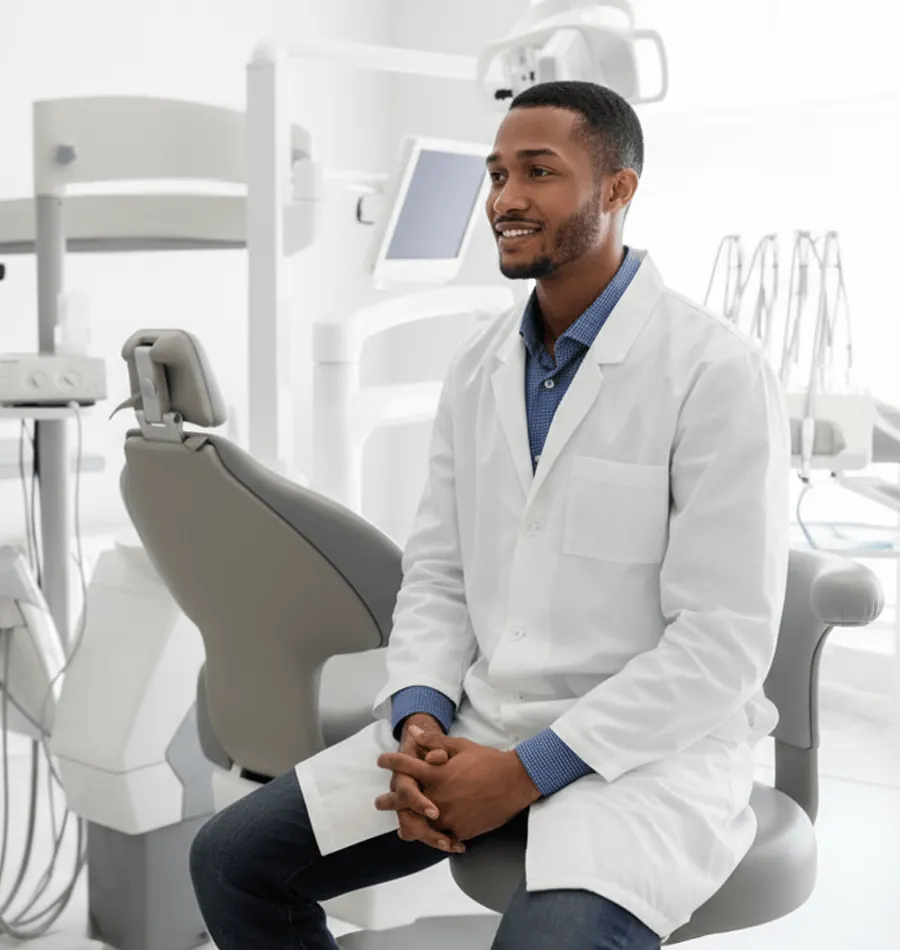Dental chairs are central to patient comfort and access. From ergonomic design to built-in delivery systems, their role in a modern dental practice is foundational. But high-quality dental chair costs can range from $2,000 to over $10,000, depending on features, brand, and installation requirements (source). That's why many dental professionals turn to financing as a practical way to manage cash flow while improving care and growing their practice.
Financing allows dentists to upgrade equipment faster, expand treatment capacity, and stay competitive without large upfront expenses. Let's break down dental chair pricing and explain financing options so you can choose the best approach for your dentistry practice.
How Much Does a Dental Chair Cost?
Installation costs vary but average around $500, especially when plumbing, electrical, or structural adjustments are involved. Specialty models, such as pediatric, orthodontic, or treatment chairs with ergonomic designs, and added features like x-ray units, LED lights, and foot controls, will drive prices upward even more.
Dental chairs vary widely in price based on condition and functionality:
Basic new models. Can start around $2,000 — $5,000.
Premium ergonomic models. Along with specialty treatment chairs, can exceed $10,000.
Refurbished chairs. Expect to pay $2,500 — $8,000 for a professionally restored unit from well-known brands like A-dec.
Why Are Dental Chairs So Expensive?
Dental chairs are complex pieces of dental equipment. They're engineered for comfort, performance, and safety all at the same time. Unlike standard office furniture, dental chairs are medical devices subject to strict engineering and safety requirements.
They combine technology, durability, and patient care features in one unit, which makes them a major investment for any dental practice. These factors drive up the cost.
Build quality. High-end chairs use reinforced steel frames and medical-grade upholstery for long-term durability.
Ergonomics. Every component, from the headrest to the armrests and backrest, is designed for both practitioner efficiency and patient comfort.
Functionality. Chairs often integrate a delivery system, lighting, and foot controls, which reduces the need for separate units.
Compliance. All equipment must meet rigorous industry and sanitation standards.
Brand influence. Top manufacturers like A-dec, Belmont, Midmark, and DentalEZ charge premium prices for proven reliability and advanced features.
Together, these factors explain why high-quality chairs cost more. At the same time, they last longer and enhance the work of dental professionals.
Average Lifespan and Reliability of Dental Chairs
New dental chairs usually last about 10 — 15 years with regular care and good construction. Proper maintenance is also essential. Several factors affect how long a chair remains dependable:
Upholstery quality. Durable, high-grade materials withstand frequent use and disinfecting.
Maintenance. Regular cleaning, lubrication, and servicing help prevent mechanical wear.
Use intensity. Chairs in high-volume clinics face more strain and may wear out sooner.
When comparing conditions, new chairs will likely be the most durable and come with warranty coverage, usually five years, though sometimes more. Refurbished chairs will be more cost‑effective but usually offer shorter warranties of one — three years.
To help extend your chair's lifespan, follow these practical tips:
Clean upholstery daily using manufacturer-approved disinfectants.
Inspect and lubricate moving parts (e.g., joints, hydraulic systems) monthly.
Promptly repair minor issues, such as loose screws or worn pads, which prevent bigger failures later.
Installation and Setup Costs
Setting up an electric dental chair involves several steps (and costs) to ensure safe, compliant functionality:
Electric wiring and plumbing. Essential for powering the chair and connecting its water and suction systems.
Sterilization and compressor connections. May require dedicated lines or outlets for autoclaves and air compressors.
Calibration. Includes handpieces and curing lights to ensure accuracy and safety.
Typical installation timeline varies from a few hours to a full day, depending on complexity. Installation costs vary but average around $500.
Financing Options for Dental Chairs
Securing financing for equipment like dental chairs has several benefits for your dental practice. Here's how various financing options compare based on reliable industry data:
| Comparison: Loans, Leasing, Credit Lines, Credit Cards | |||||||
|---|---|---|---|---|---|---|---|
| Financing type | APR/Rate | Terms | Down payment | Approval speed | Pros | Cons | Best for |
| Equipment loan | 4 % — 25 % | Varies by agreement | 10% — 20% down | Two — five days | Own equipment, predictable payments, tax depreciation | Possible high APR for lower credit; collateral needed | High‑value purchases intending long‑term use |
| Leasing | 9% — 15 % for average credit; 6 — 8 % for excellent credit | Varies by agreement | Often low to none | Fast, often within days | Low upfront cost, options to upgrade periodically | No ownership unless buy‑out; may cost more over time | Tech that evolves quickly or short‑term needs |
| Line of credit | 7% — 25% | Revolving, variable | None typical | One —three days | Flexible access, interest only on what's used | Variable rate can rise; less predictability | Managing cash flow or minor, ongoing needs |
| Credit card | Up to 27% | Revolving | None | Instant | Immediate access, easy use | High interest rate | Short-term expenses |
Common Requirements
To qualify for most types of dental chair financing, lenders typically require that the business has been operational for at least six months. Applicants will also need to provide an equipment quote or invoice, especially for loan structures where the chair serves as collateral. Financial documentation, such as recent bank statements, credit score information, and proof of revenue, is also essential.
Tax Benefits and Ownership Implications
One major advantage of equipment loans is the potential to use Section 179 deductions, which allow dental practices to depreciate the full cost of a qualified purchase within the year it was financed. Leasing, by contrast, often includes maintenance and easier equipment upgrades, but it does not confer ownership unless a buy-out clause is exercised at the end of the lease term.
Which Financing Option Suits Your Needs?
Here's a logical path to guide your decision-making:
Do you want to own the chair at the end?
Yes → Equipment loan
No → Go to next
Do you need flexibility, or plan to upgrade frequently?
Yes → Leasing makes sense
No → Check budget
Concerned about upfront cash or operating expenses?
High initial cost → Leasing or line of credit fits best
Don't want APR surprises → Prefer equipment loan for predictability
Looking to maximize tax deduction this year?
→ Equipment loan might be best due to depreciation benefits
Lower credit score?
Equipment financing backed by the equipment as collateral may help; leases might offer more flexibility.

Top Dental Equipment Lenders and Leasing Companies
Financing dental equipment often requires working with lenders who understand the unique costs and revenue cycles of dental practices. Specialized lenders and leasing companies can provide flexible repayment structures, competitive rates, and tailored options for everything from imaging technology to patient chairs.
These lenders have leasing programs that allow practices to upgrade equipment more frequently without large upfront costs. Choosing the right partner ensures dental professionals can maintain modern, efficient practices while preserving cash flow for other operational needs.
Here are some specialist providers offering financing options tailored to dental professionals:
Clarify Capital
Clarify Capital offers fast, low-documentation approvals for dental professionals, with funding often available the same day or within 24 hours. Applicants will need to submit bank statements, quotes, and a credit score.
Henry Schein Financial Services
Henry Schein Financial Services supports up to 100% financing of equipment costs, with terms extending to 15 years and same-day approvals. They also provide guidance on Section 179 deductions and offer structured programs like “Route 66,” which allow deferred payment options.
National Funding
National Funding customizes loans and leases for both new and pre-owned dental equipment. To qualify, practices generally need at least six months in business and fair to excellent credit.
Traditional Banks
Traditional banks and SBA-backed lenders also provide structured loans suitable for dental practices. SBA 7(a) loans can reach up to $5 million and offer longer repayment terms and potentially lower rates.
Qualification Checklist for Financing
Before applying for dental chair financing, make sure your dental practice meets the most common lender requirements. Accurate, organized documentation increases your chances of approval and speeds up funding.
Meeting these requirements improves approval odds and helps you qualify for better rates and terms. Lenders view organized applicants as lower risk, which can speed up the underwriting process and reduce back-and-forth requests for additional documents.
Reviewing and preparing this checklist in advance ensures your financing experience is smoother and less stressful.
Business credit score. Most lenders require a credit score of 550 or higher to qualify.
Revenue documentation. Submit at least three months of recent bank statements.
Proof of business operations. Include articles of incorporation or a valid business license showing you're located or registered in the US.
Dental license. If you're the practitioner applying, lenders may require a copy of your active dental license.
Business bank account. All funds must go through a verified business checking account.
Clear, accurate documentation. Incomplete or inconsistent records may delay underwriting or result in denial.
Typical approval timeline. Most lenders offer decisions within one to five business days when paperwork is complete.
Real-World Examples of Dental Chair Financing
Dr. Patel, a general dentist in Phoenix, wanted to grow her dental practice by opening a second location. She opted for a $250,000 SBA 7(a) loan, securing a competitive interest rate (typically 10.5% — 13.5% in 2025) and a long repayment period of up to 10 years. Approval came in just 45 days. The funding supported equipment purchases, staffing, and construction, and within six months of opening, the new office boosted revenue by $35,000 per month and grew the patient base by 40%.

Upgrade Your Practice With Smart Financing
For growing practices, financing offers a practical way to stay competitive and serve more patients without exhausting working capital. Whether replacing aging equipment or expanding into a second operatory, dental chair financing allows them to act quickly and confidently.
By spreading the cost of upgrades over time, your dental practice can immediately benefit from high-quality equipment designed for efficiency and patient comfort. Financing supports not only short-term operational needs but also long-term business growth.
Explore your options and apply today through Clarify Capital, where fast, flexible funding is built for dental professionals.
Frequently Asked Questions
If you plan to finance dental equipment or upgrade to a new dental chair, you will likely have questions about the process, credit requirements, and what to expect from warranties. Here are answers to some of the most common questions from dental professionals.
Can I Finance Used Dental Chairs?
Yes, many lenders offer financing for refurbished and pre-owned dental chairs, especially if the equipment is from a reputable brand like A-dec, Belmont, or Midmark. To qualify, lenders typically require that the chair is in good working condition, not over a few years old, and has a known maintenance history. Some may also require a third-party inspection or appraisal.
That said, financing used chairs can carry a higher risk. A pre-owned patient chair may have a shorter lifespan, outdated features, or limited warranty support. Carefully review warranty terms and expected usage life before committing.
What Credit Score Is Needed?
For most dental chair financing programs, lenders prefer a credit score of 550 or higher. Some specialty lenders may approve scores as low as 500, though terms may be less favorable. For dental professionals with lower scores, options like short-term leases, revenue-based financing, or adding a co-signer may improve approval chances.
If your credit is above 650, you're more likely to qualify for lower APRs and better terms, especially with established business revenue.
Do Dental Chairs Come With Warranties?
Yes. Most new dental chairs include a manufacturer's warranty, typically covering five years or more for major components. These warranties often cover frame integrity, hydraulic systems, and electronics, depending on the brand. Top-tier models may even include extended service plans.
For used or refurbished chairs, warranties may be limited or provided by third parties. These are often shorter, one to three years, and may exclude certain components. Regardless, confirming warranty coverage is essential when comparing durable dental equipment options.

Bryan Gerson
Co-founder, Clarify
Bryan has personally arranged over $900 million in funding for businesses across trucking, restaurants, retail, construction, and healthcare. Since graduating from the University of Arizona in 2011, Bryan has spent his entire career in alternative finance, helping business owners secure capital when traditional banks turn them away. He specializes in bad credit funding, no doc lending, invoice factoring, and working capital solutions. More about the Clarify team →
Related Posts





